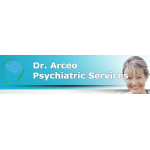Introduction
Obsessive-Compulsive Disorder
(OCD) is a mental health condition characterized by intrusive, persistent, and
distressing thoughts (obsessions) and repetitive behaviors or mental acts
(compulsions) aimed at reducing anxiety. While psychotherapy, such as
Cognitive-Behavioral Therapy (CBT), is often a primary treatment for OCD,
psychotropic medications can also play a vital role in managing the symptoms of
this disorder. In this article, we will delve into the use of psychotropic
medications and the components of an effective OCD treatment plan.
Psychotropic Medications for OCD
Psychotropic medications are
drugs that affect mental processes and can be useful in managing the symptoms
of OCD, particularly when combined with psychotherapy. Two classes of
medications are commonly prescribed for OCD:
Selective Serotonin Reuptake Inhibitors (SSRIs): SSRIs are the first-line medications for OCD treatment. They increase the availability of serotonin, a neurotransmitter associated with mood regulation. Common SSRIs used for OCD include fluoxetine (Prozac), sertraline (Zoloft), and fluvoxamine (Luvox).
Tricyclic Antidepressants (TCAs): TCAs, such as clomipramine (Anafranil), are another class of antidepressants that can effectively reduce OCD symptoms. Clomipramine is often considered when SSRIs are not sufficient.
Augmentation Therapies: In some cases, doctors may prescribe atypical antipsychotics, such as risperidone (Risperdal) or aripiprazole (Abilify), as augmenting agents to enhance the effects of SSRIs or TCAs.
OCD Treatment Plan
A comprehensive treatment plan
for OCD should be developed with the collaboration of a mental health
professional, considering the individual's unique needs and preferences. Here
are the key components of an effective OCD treatment plan:
Assessment and Diagnosis: Begin with a thorough evaluation to determine the severity and specific nature of the OCD symptoms. This will help guide the treatment approach.
Psychotherapy (CBT): Cognitive-Behavioral Therapy is the gold standard for OCD treatment. Exposure and Response Prevention (ERP) is a specific CBT technique that gradually exposes individuals to their obsessions and helps them resist engaging in compulsions.
Medication Management: If symptoms are severe or not well-controlled with therapy alone, a mental health professional may consider prescribing SSRIs, TCAs, or other medications as mentioned earlier.
Lifestyle and Self-Care: Encourage individuals to adopt a healthy lifestyle, including regular exercise, a balanced diet, and adequate sleep. Reducing stress through relaxation techniques can also be beneficial.
Support and Education: It is crucial to involve family members or a support system in the treatment process. Education about OCD helps loved ones better understand the condition and provide support.
Regular Follow-Up: OCD treatment is often a long-term process. Regular follow-up appointments with a mental health professional are essential to assess progress and make any necessary adjustments to the treatment plan.
Monitoring and Relapse Prevention: Continue monitoring for relapse or new symptoms and develop strategies to prevent setbacks.
Conclusion
OCD is a challenging condition
that often requires a combination of psychotherapy and psychotropic medications
to effectively manage symptoms. It is essential to work closely with a mental
health professional to design a personalized OCD treatment plan that meets
individual needs. While medications can help alleviate distressing symptoms,
therapy remains a cornerstone of treatment, empowering individuals with OCD to
confront their fears and regain control over their lives.





Comments